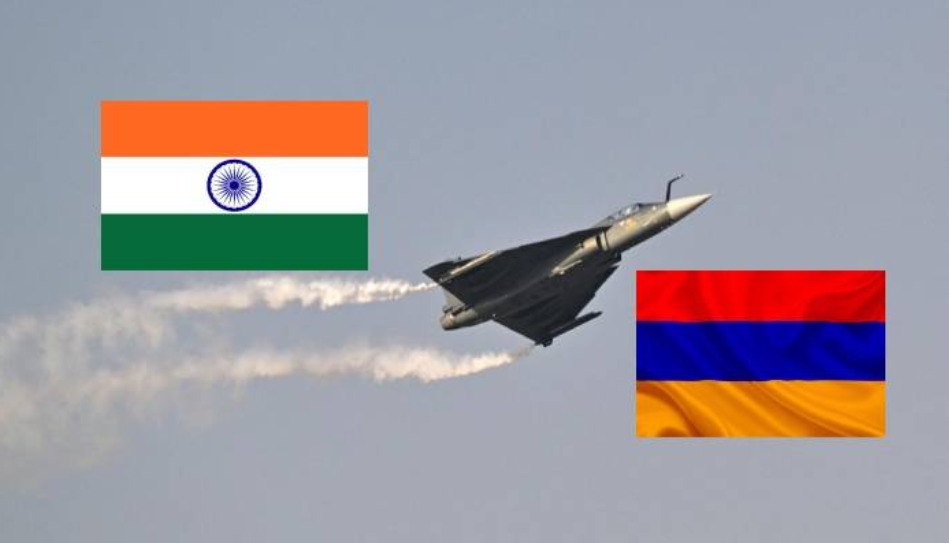The suspension of the $1.2 billion deal for 12 jets casts uncertainty over what would have been the first major export contract for the lightweight combat aircraft (Catchline)

MM Report
YEREVAN: Armenia has put on hold plans to acquire Indian-made Tejas fighter jets after a crash at the Dubai Air Show raised concerns over the aircraft’s operational safety. The suspension came amid ongoing discussions over a $1.2 billion deal for 12 jets, which, if finalized, would have represented the first significant export contract for the lightweight combat aircraft.
International reports indicated that negotiations between the two countries had been progressing steadily, with Armenia looking to modernize its air force and India seeking to establish a foothold in the global defence market. However, the crash of a Tejas aircraft on November 21 at the high-profile Dubai Air Show dramatically altered the equation.
The aircraft went down during a demonstration flight, and the pilot tragically lost his life, prompting both operational and diplomatic repercussions. The incident has intensified scrutiny over the readiness of the Tejas for international buyers. Analysts noted that while the aircraft has been operational within India’s own air force, questions about its performance, reliability, and export suitability are likely to dominate the discussions going forward.
The crash has injected a new layer of uncertainty into India’s broader defence export ambitions, which have been steadily promoted by the government as part of its ‘Make in India’ strategy. Financial implications are also expected to be significant. Israel Aerospace Industries, which supplied several critical systems for the Tejas jets, including radar components and avionics, stands to face potential losses if the deal is ultimately abandoned or delayed indefinitely.
Industry insiders suggested that the suspension could complicate India’s efforts to showcase the aircraft to other potential buyers in Asia, Europe, and Africa. Despite the setback, Indian defence officials stressed that investigations into the crash are ongoing and that the Tejas program remains a cornerstone of the country’s indigenous aircraft development efforts.
While Armenia’s decision to pause the purchase casts a shadow over immediate export prospects, observers said the long-term impact on India’s aviation sector would depend on the findings of the probe and subsequent confidence-building measures. For now, the crash has underscored the challenges facing India as it seeks to expand its footprint in a competitive global defence market, highlighting how high-profile incidents can abruptly shift the calculus for international arms deals.


